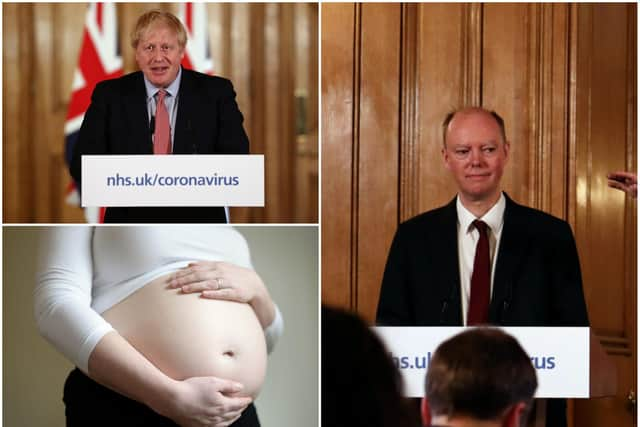Coronavirus: Pregnant women must minimise social contact, says chief medical officer
Speaking alongside Prime Minister Boris Johnson, England’s chief medical officer Professor Chris Whitty said: "The group of people who we would want to take this advice particularly seriously are older people above 70, people who in adult life would normally be advised to have the flu vaccination, so these are people with chronic diseases such as chronic heart disease or chronic kidney disease, and also - as a precautionary measure because we are early in our understanding and we want to be sure - women who are pregnant.
"Those are the groups we want to take particular care to minimise their social contact which of course will have very significant risks for them."


Isolation
Advertisement
Hide AdAdvertisement
Hide AdOn the 14-day stay at home, Prof Whitty added: "If one person in the household has symptoms the whole household stays at home. Now there has to be some common sense around this, if there is a very vulnerable person in the household, for example, people will need to take that into account."
He said: "The reason for this is because they are helping to stop it be transmitted onto the rest of the community and these people - the trouble is if you are actually in a household with someone who has got coronavirus, there is a reasonably high chance you will be infected and will go on to get it."
Professor Whitty said that protecting care home residents will be one of "the most challenging things" to deal with during the Covid-19 outbreak.He said: "Let me be clear, that the 'how to protect people in care homes and nursing homes?' is going to be one of the most challenging things for every nation on this question."Because of course they are vulnerable and they do have to move in and out of health services from time to time."
